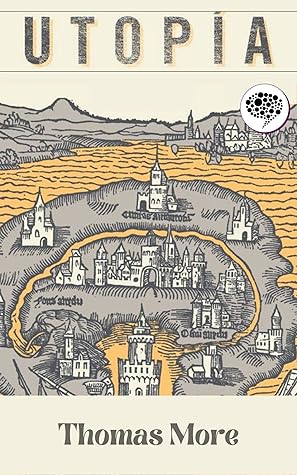More on this book
Community
Kindle Notes & Highlights
by
Thomas More
Read between
December 3 - December 21, 2023
Designedly fantastic in suggestion of details, “Utopia” is the work of a scholar who had read Plato’s “Republic,”
There are dreadful punishments enacted against thieves, but it were much better to make such good provisions by which every man might be put in a method how to live, and so be preserved from the fatal necessity of stealing and of dying for it.’
There is a great number of noblemen among you that are themselves as idle as drones, that subsist on other men’s labour, on the labour of their tenants, whom, to raise their revenues, they pare to the quick.
for if you suffer your people to be ill-educated, and their manners to be corrupted from their infancy, and then punish them for those crimes to which their first education disposed them, what else is to be concluded from this but that you first make thieves and then punish them?’
Upon these reasons it is, that I think putting thieves to death is not lawful; and it is plain and obvious that it is absurd and of ill consequence to the commonwealth that a thief and a murderer should be equally punished; for if a robber sees that his danger is the same if he is convicted of theft as if he were guilty of murder, this will naturally incite him to kill the person whom otherwise he would only have robbed; since, if the punishment is the same, there is more security, and less danger of discovery, when he that can best make it is put out of the way; so that terrifying thieves too
...more
Those that are found guilty of theft among them are bound to make restitution to the owner, and not, as it is in other places, to the prince, for they reckon that the prince has no more right to the stolen goods than the thief; but if that which was stolen is no more in being, then the goods of the thieves are estimated, and restitution being made out of them, the remainder is given to their wives and children; and they themselves are condemned to serve in the public works, but are neither imprisoned nor chained, unless there happens to be some extraordinary circumstance in their crimes. They
...more
The Prince is for life, unless he is removed upon suspicion of some design to enslave the people.
One rule observed in their council is, never to debate a thing on the same day in which it is first proposed; for that is always referred to the next meeting, that so men may not rashly and in the heat of discourse engage themselves too soon, which might bias them so much that, instead of consulting the good of the public, they might rather study to support their first opinions, and by a perverse and preposterous sort of shame hazard their country rather than endanger their own reputation, or venture the being suspected to have wanted foresight in the expedients that they at first proposed;
...more
Women, for the most part, deal in wool and flax, which suit best with their weakness, leaving the ruder trades to the men.
The magistrates never engage the people in unnecessary labour, since the chief end of the constitution is to regulate labour by the necessities of the public, and to allow the people as much time as is necessary for the improvement of their minds, in which they think the happiness of life consists.
No family may have less than ten and more than sixteen persons in it, but there can be no determined number for the children under age; this rule is easily observed by removing some of the children of a more fruitful couple to any other family that does not abound so much in them.
but if any man goes out of the city to which he belongs without leave, and is found rambling without a passport, he is severely treated,
The education of youth belongs to the priests, yet they do not take so much care of instructing them in letters, as in forming their minds and manners aright; they use all possible methods to infuse, very early, into the tender and flexible minds of children, such opinions as are both good in themselves and will be useful to their country, for when deep impressions of these things are made at that age, they follow men through the whole course of their lives, and conduce much to preserve the peace of the government, which suffers by nothing more than by vices that rise out of ill opinions.
and are of a religion which they hope is the truest of all others;


